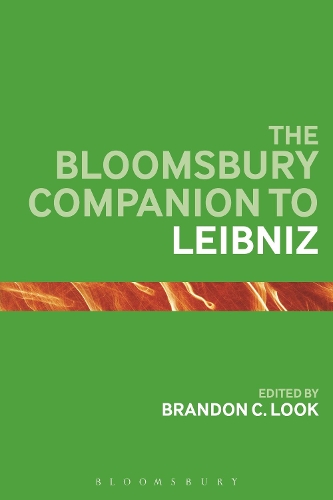
The Bloomsbury Companion to Leibniz
(Paperback)
Publishing Details
The Bloomsbury Companion to Leibniz
By (Author) Brandon C. Look
Bloomsbury Publishing PLC
Bloomsbury Academic
25th September 2014
United Kingdom
Classifications
Tertiary Education
Non Fiction
193
Physical Properties
Paperback
344
Width 156mm, Height 234mm
485g
Description
The Bloomsbury Companion to Leibniz presents a comprehensive and authoritative introduction to the life, thought and work of one of the great polymaths of the modern world, G.W. Leibniz. This guide enriches the reader's understanding of Leibniz by establishing the philosophies of, and Leibnizs reactions to, his most important philosophical contemporaries from Descartes to Malebranche. While addressing current philosophical research in Leibniz studies such as his metaphysics, logic and theory of free will, a leading team of experts in the field demonstrate that Leibnizs work was wider in scope. Examining new directions in this field they cover a number of Leibnizs concerns outside of philosophy including mathematics, physics, and the life sciences. The Companion concludes by offering analysis of Leibniz's legacy; his impact on further study, particularly on his successor Immanuel Kant, and how he has subsequently been understood. Together with extended biographical sketches and an up-to-date and fully comprehensive bibliography, The Bloomsbury Companion to Leibniz is an extremely valuable study tool for students and scholars interested in Leibniz and the era in which he wrote.
Reviews
The Continuum Companion to Leibniz is in many respects a splendid achievement... the individual contributions are of an exceptional quality. The volume testifies to the immense progress in Leibniz scholarship achieved by Anglo-American historians of philosophy in the last decades... the book is an excellent resource for graduate students and professional philosophers wishing to acquire an idea of what top Leibniz research looks like today. -- Notre Dame Philosophical Reviews
Author Bio
Brandon C. Look is University Research Professor at the Department of Philosophy, University of Kentucky, USA. His research focuses on the history of early modern philosophy, especially on the thought of Spinoza, Leibniz, and Kant. He also works on issues in contemporary metaphysics, epistemology, logic, and the history and philosophy of science. He is the co-editor and translator (with Donald Rutherford) of The Leibniz-Des Bosses Correspondence (2007) and the author of Leibniz and the 'Vinculum Substantiale' (1999).
